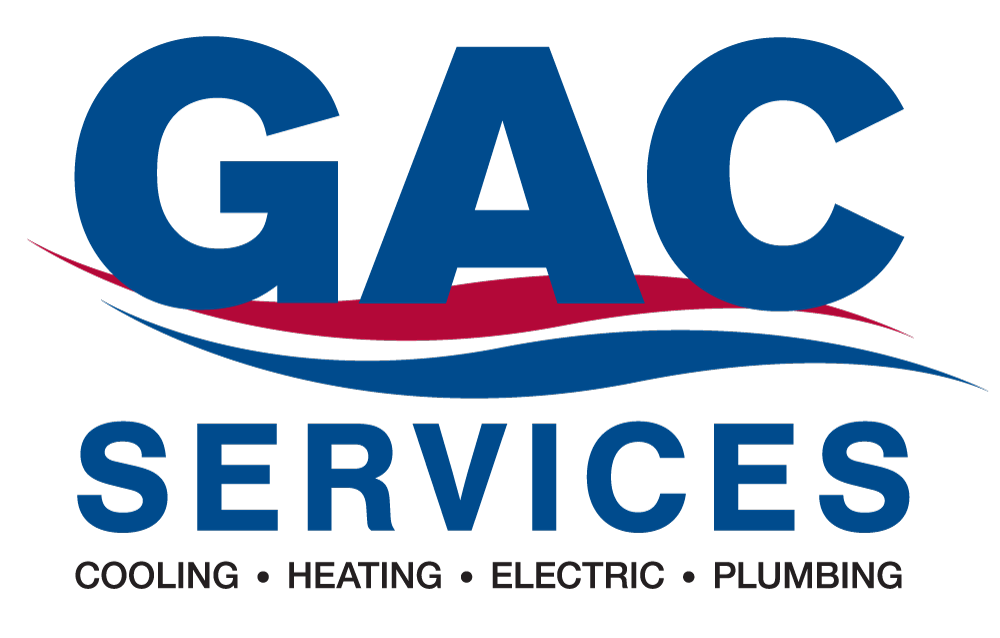Did you know you don’t have to exclusively use a central cooling or heating system for your home? Heat pumps rival air conditioners and furnaces as reliable heating and cooling systems for Maryland homeowners. In fact, Maryland Matters reports that roughly a quarter of homes in Maryland have heat pumps installed.
In this heat pump guide, we’ll take a look at how these revolutionary HVAC units work, their benefits, and how to get the most out of your unit.
What Is a Heat Pump?
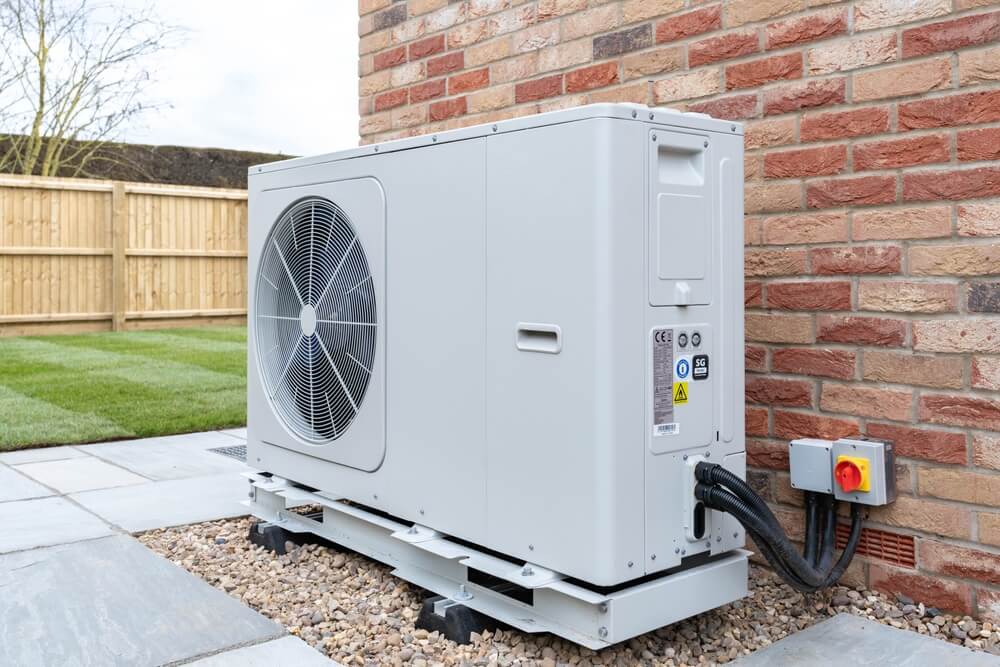
A heat pump is an efficient system that transfers heat from one location to another using relatively small amounts of energy. This heat transfer can be utilized for heating and cooling purposes, making heat pumps versatile solutions for summer and winter.
How Does a Heat Pump Work?
Rather than generating heat with gas or electricity, heat pumps transfer heat from the Earth. They use a refrigerant that cycles through evaporation and condensation, supported by a compressor and heat exchanger coils.
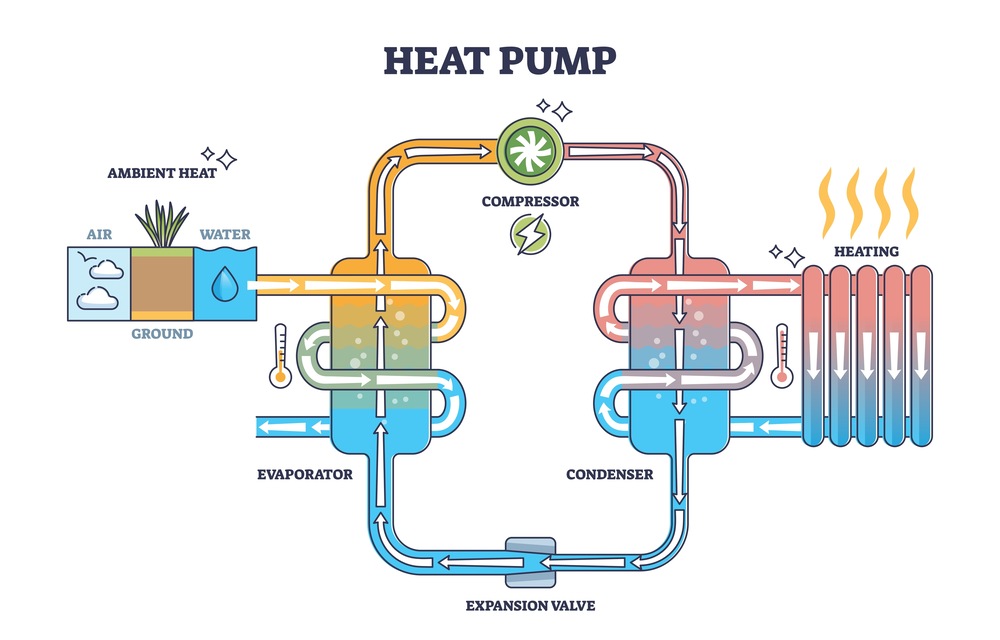
Heating Mode
- Heat Absorption: Extracts heat from an external source (air or ground).
- Heat Transfer: Refrigerant absorbs heat and evaporates into a gas.
- Compression: Compresses the gas, raising its temperature.
- Heat Release: Heat is released through indoor coils to warm the building.
- Refrigerant Cycle: Cools down, condenses back into a liquid, and repeats the cycle.
Cooling Mode (Reversed Process)
- Heat Absorption: Absorbs heat from indoor air, causing the refrigerant to evaporate into a gas.
- Heat Transfer: Expels absorbed heat to the outside air or ground.
- Compression and Condensation: Compresses and then condenses the refrigerant, releasing heat outdoors.
- Cooling Release: Cycles cool the refrigerant back indoors to absorb heat and cool the space.
Types of Heat Pumps
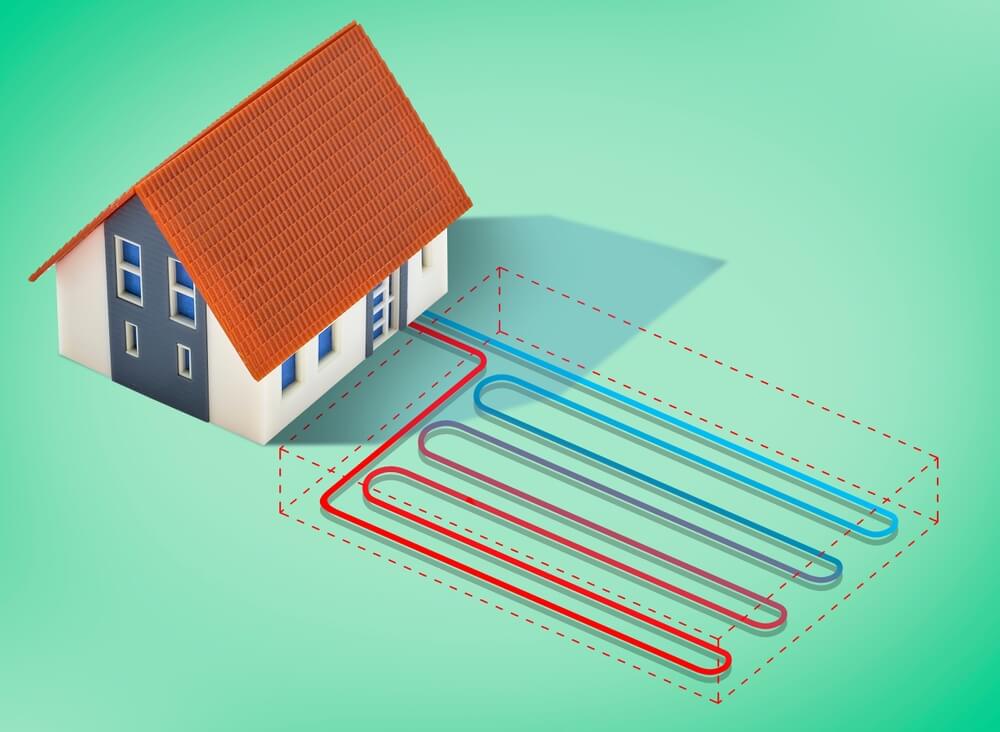
A heat pump guide wouldn’t be complete without describing the various types of heat pumps you can install. Before you purchase the most common or cheapest heat pump, it’s important to research the various styles offered.
Consulting an experienced HVAC technician is wise. This way, you can have your home and property inspected to accurately understand which heat pump style meets your needs.
Here are the three types of heat pumps you can install:
- Air-Source Heat Pumps: These units extract heat from the outside air. Compared to other styles, they are easier and less expensive to install and maintain. Air-source pumps come in both ducted and ductless styles.
- The average cost of an air-source heat pump unit and installation is between $3,500 to $7,500.
- Ground-Source Heat Pumps: Also known as geothermal heat pumps, these units extract heat from the ground or groundwater. They are more efficient than air-source heat pumps, particularly in extreme temperatures, but have higher installation costs due to the need for ground loop systems.
- The average cost of a ground-source heat pump unit and installation is between $10,000 to $30,000.
- Water-Source Heat Pumps: These units extract heat from a body of water, such as a lake or a well. While they are efficient, their use is location-dependent because they need an available source of water.
- The average cost of a water-source heat pump unit and installation is between $2,000 to $10,000.
Pros & Cons of Heat Pumps
As you would with any other major purchase, you should consider the pros and cons of heat pumps. While these systems will efficiently heat and cool your home year-round, they are also more expensive than other heating and cooling systems.
Pros of Heat Pumps
- Energy Efficiency: Heat pumps are more efficient than other systems. In fact, they can achieve over 300 percent efficiency by producing three to four times more energy.
- Cost Savings: Due to their unique process and high-efficiency rate, heat pumps save you more money in the long term.
- Year-Round Use: These systems provide both heating and cooling, eliminating the need for multiple systems in your home.
- Environmental Benefits: Heat pumps have a reduced carbon footprint, as they often use less electricity and can be powered by renewable energy sources.
- Safety: Since these units don’t rely on gas, the risk of random combustion is lowered.
- Low Maintenance: Heat pumps generally require less maintenance compared to traditional HVAC systems.
- Improved Air Quality: Your home’s air quality can be improved through better humidity control, and filtration can improve indoor air quality.
- Quiet Operation: Modern heat pumps operate quietly, making your home more peaceful. Loud noises can indicate that there’s an issue with the unit.
Cons of Heat Pumps
- High Initial Cost: Heat pumps have a higher initial cost than traditional HVAC systems. However, their efficiency makes up for this fact.
- Energy Source Dependency: While efficient, heat pumps still require electricity to operate, which may not be as cost-effective if your area’s electricity rates are high.
- Climate Sensitivity: Air-source heat pumps may be less efficient in extremely cold climates, though advanced models have improved performance in low temperatures.
- Water-Source Limitations: Water-source heat pumps require access to a body of water, which limits their applicability for some homeowners.
How to Maintain a Heat Pump
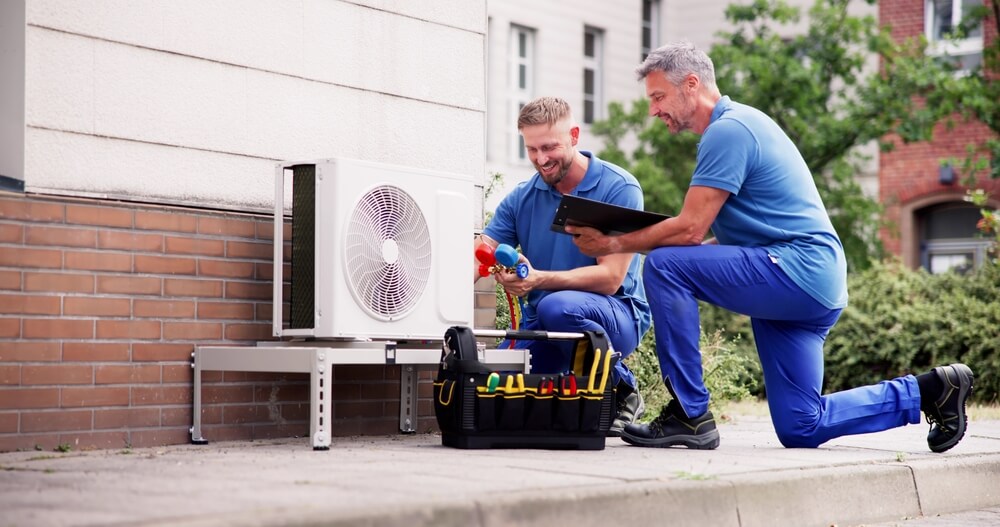
To avoid issues like heat pump leaks or strange noises, it’s important to routinely service your heat pump. For homeowners, it’s important to clean the unit and change the air filter regularly. However, since they operate year-round, it’s best to have them tuned up at least twice a year – once in the spring and once in the fall before the weather severely changes.
It’s best to partner with an HVAC company that can service your unit throughout the year so it remains consistently clean and safe.
However, if you notice any of the following problems with your unit, you may need repairs:
- Your unit is not turning on.
- Your unit is making loud noises.
- There are unusual spikes in your energy bill.
- Your unit is freezing or icing over.
Do you want to learn more about heat pumps? Speak to GAC Services’ heat pump contractors in Gaithersburg, Frederick County, Montgomery County, and Howard County, Maryland.
Contact us today to schedule an appointment.

